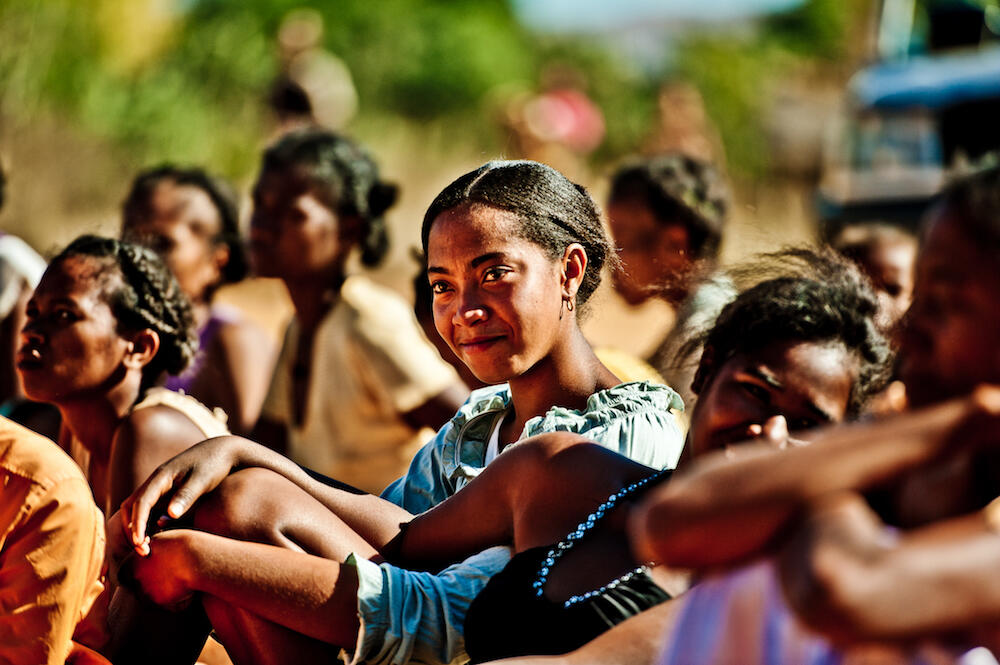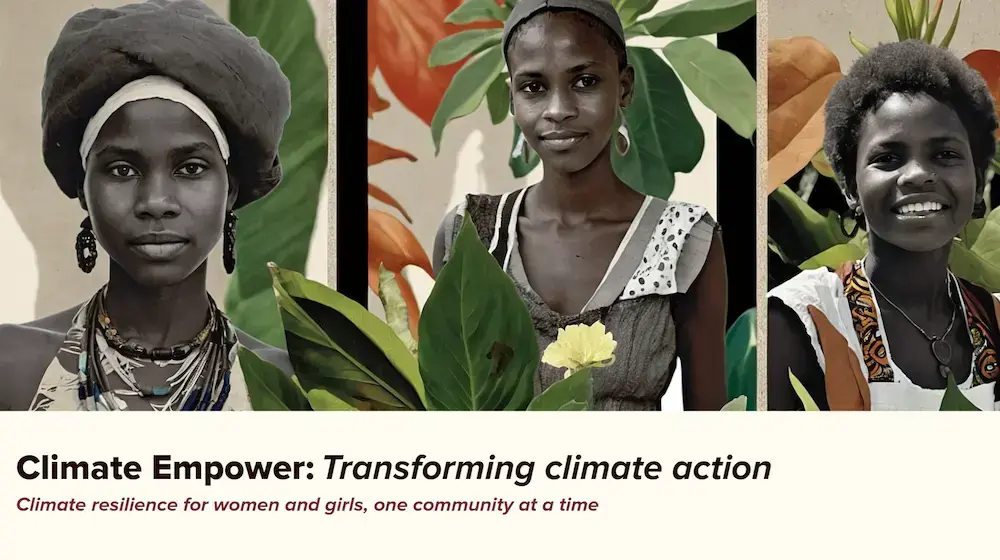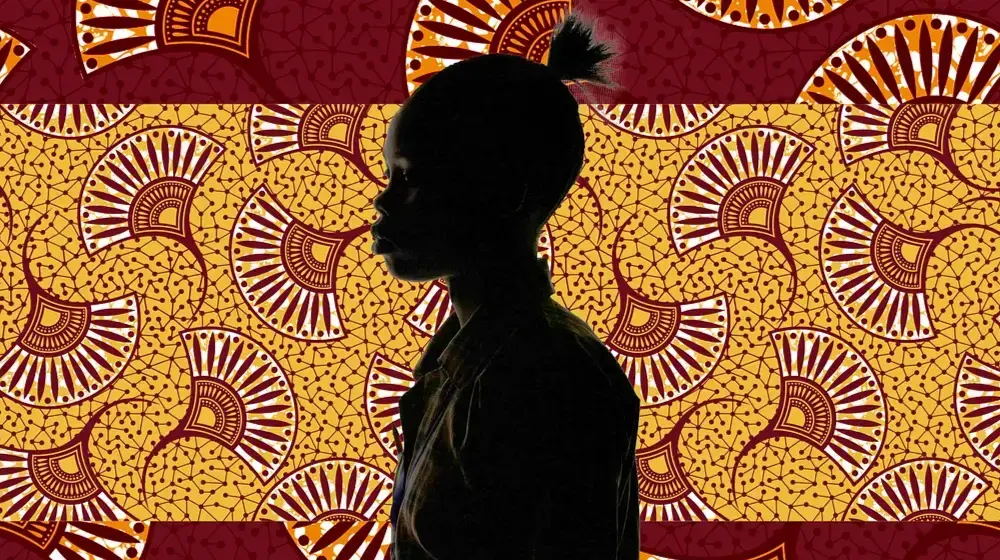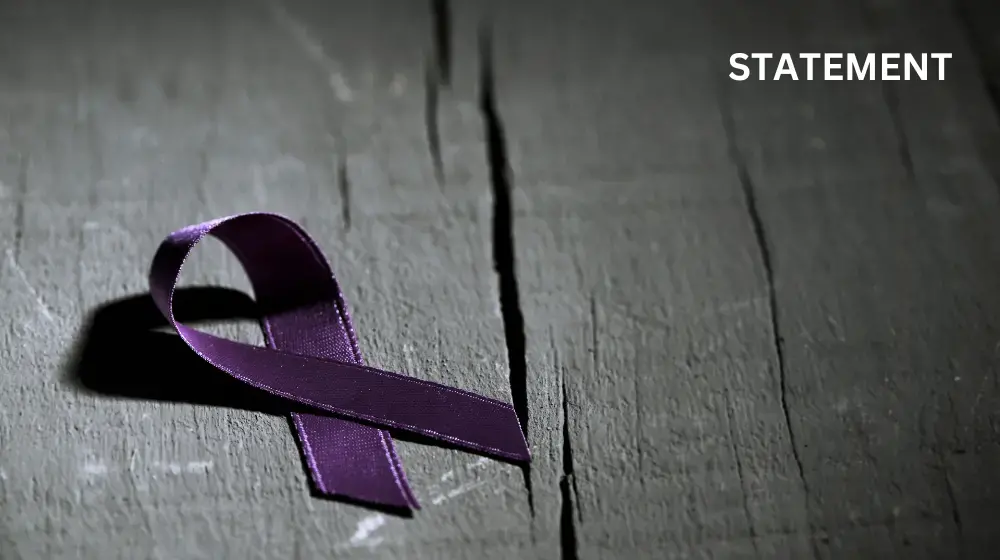MADAGASCAR—Narindra Solonjanahary, 19, is not your average teenager. At the tender age of 15, her mother forced her to marry an already-married businessman three times her age. “She said it was to support my little brothers and sisters as my father didn't want to help us anymore,” she said.
Her parents had separated twelve years earlier. She was in ninth grade at the time of her marriage and it meant the suspension of her schooling. Not surprisingly, her mother’s decision was an unwelcome one.
“I didn't want to [marry] but she forced me to do it and stop my studies,” she said. As is so often the case with child marriages, her family benefited financially from her early union.
“The man gave money to my mother and the family for the vody ondry (dowry) and he contributed to the monthly expenses of my family,” she said.
Because he was already married, he rented a second house for her and lived there with her. Soon she found herself in an abusive relationship.
He asked me to have sex all the time and if I didn't agree, he would yell at me, insult me and hit me.
“He asked me to have sex all the time and if I didn't agree, he would yell at me, insult me and hit me,” she said. “I told my mother that I could not bear this violence anymore and that I wanted to go home, but she refused and forced me to stay with him.”
For a while, she endured the punishing new environment she found herself in as it seemed there was no alternative.
“It was really a difficult situation and I didn't know what to do but suffer in silence. I suffered so much from this. He wanted to have a child with me, when I was not yet ready,” she said.
From abused wife to empowered youth advocate
She shared her concerns with a friend who was a member of the Tuléar Youth Centre, who advised her to have a medical consultation at the youth centre’s health corner, to get family planning advice and prevent early pregnancy.
I heard an awareness-raising session on the fight against child marriage by young people and I learned that forcing an underage girl to marry is illegal.
“I did it in secret without talking to either my mother or my partner. A few months later, I heard an awareness-raising session on the fight against child marriage by young people and I learned that forcing an underage girl to marry is illegal,” she said.
This meeting would become a powerful turning point in her life.
“I asked for advice and the young peer educator directed me to the Listening and Legal Counselling Centre (CECJ) to know my rights and to ask for the steps to follow,” she said.
She consulted a social worker at the centre, who explained to her what her rights were in this situation, as well as the sanctions that her husband and mother faced if she lodged a formal complaint against them. She decided to speak to her mother first.
“I spoke with my mother and I told her to come with me to the CECJ, but she refused and said that she has the right to decide for me as I am a minor,” the young woman said.
Her mother hit her for seeking the CECJ’s help without her permission, yet the teenager refused to accept her fate.
It was a very difficult decision for me but I told myself that it was time for this nightmare [ … ] to end, because I couldn't bear to go back to live with this man anymore.
“It was a very difficult decision for me but I told myself that it was time for this nightmare [ … ] to end, because I couldn't bear to go back to live with this man anymore. So I decided to lodge a complaint, regardless of the consequences [for] my mother,” she explained.
On a path to healing
She filed a formal complaint with the CECJ and police arrested her mother and husband. In court, her partner received 10-year prison sentence while her mother was given a three-year suspended sentence, as she fell ill prior to the trial. For three months, the teenager received weekly counselling at the CECJ, to help her recover from her horrific experience.
“My mother asked for forgiveness and she even made other mothers aware of the rights of girls facing this practice,” she said. She has since returned to her mother’s home.
Concrete steps needed to end child marriage in Madagascar
As a survivor of this horrific practice, the young woman has a set of solutions she proposes:
- All actors, especially the government, must work to strengthen awareness among young people, especially at community and rural level, that child marriage is illegal.
- Through the establishment of parent schools, parents must be educated on the rights of girls and about the harmful traditional practice of child marriage.
- The number of youth spaces and centres, where young people can access information on their rights, especially with regards to sex education, must be increased.
- Survivors of child marriage must be reintegrated into school.
- Child marriage survivors who are not able to continue with their education require socio-economic reintegration through vocational training, and collaboration with the business community once their training is complete.
- While the Marriage Law prohibits marriage under the age of 18, a specific law against child marriage is needed, and enforcement must be effective at all levels.
- The national youth policy must be update and operationalized.
With the support of the CECJ, she was able to return to school to continue her education. She has become a Young Peer Educator at the Tulear Youth Centre, where she helps empower girls to avoid the fate she suffered. Her ambition now is to become a journalist.
I want to educate young girls and mothers to realize that child marriage is not a solution to solve family problems, and that it is a punishable act.
“The rate of early marriage in Madagascar is among the highest in the world. It is time to change this harmful practice,” she said. “I want to educate young girls and mothers to realize that child marriage is not a solution to solve family problems, and that it is a punishable act, both for the parents and for the author."
In Madagascar, 41 per cent of girls are married before the age of 18. UNFPA supports the Malagasy government's efforts to end this practice through the Ministry of Population, in partnership with other UN agencies and implementing partners (non-governmental organizations, states institutions and ministries).





